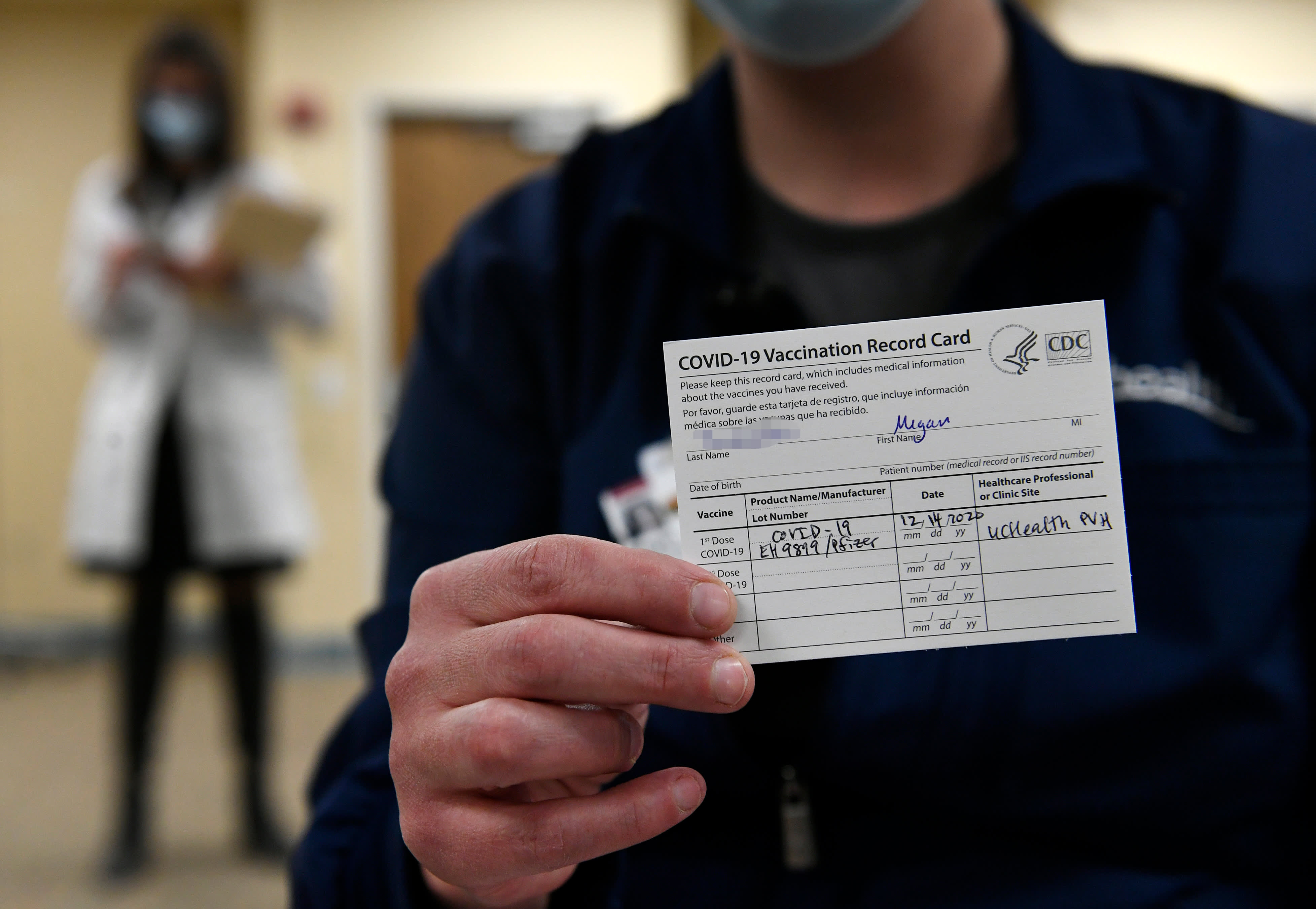A Poudre Valley Hospital ICU Nurse shows off her vaccination card after getting the first round of Covid-19 vaccines at UC Health Poudre Valley Hospital on December 14, 2020 in Fort Collins, Colorado.
Helen H. Richardson | The Denver Post | Getty Images
It’s tempting to tell the world as soon as you receive a coveted Covid shot. But there’s reason to rein it in.
For starters, sharing a photo of your vaccination card on social media makes you a potential target of identity theft, according to the Better Business Bureau.
Not only does the personal information on the card, including your full name and birthday, make you vulnerable to scammers, it also provides all the information they need to create and sell phony cards online. (These cards are often given after vaccine recipients get their first dose.)
If you want to post about your vaccine, there are safer ways to do it, the Better Business Bureau advised.
For example, share a photo of your vaccine sticker instead, or change your privacy settings so only friends and family see your posts.
More from Personal Finance:
Republicans push for $1,000 stimulus checks
Democrats want to pass a $15 minimum wage
One year after Covid in America: A financial snapshot
Such visual displays are key to spreading a positive public health message about the Covid-19 vaccine, the Centers for Disease Control and Prevention has said. And, they can go a long way toward building confidence and encouraging others to get vaccinated.
But with such limited supply and appointments hard to come by, posting about getting vaccinated, possibly ahead of high-risk candidates, also presents a murky moral dilemma — particularly as examples of the inequitable distribution of the vaccines increase.
With supply so constrained, ”there’s some inherent conflict there,” said Steven Thrasher, a professor and Daniel H. Renberg chair of social justice at Northwestern University. “We do have to wrestle with how this vaccine has been rolled out.”
Rather than figure out how you can get your own vaccine appointment, help others without the same time and resources, he said.
More than 48.4 million doses of the vaccine have been distributed in the U.S. so far, according to data from the CDC. Among those who received a first dose, 55% were over 50 years old.
“There’s always going to be someone more in need behind you in line,” said Zoe McLaren, an associate professor in the School of Public Policy at the University of Maryland, Baltimore County.
“We want to encourage everyone to get vaccinated and be proud of getting vaccinated, but until we have enough doses for everybody, we want to make sure those doses go to the people at greatest risk,” she said.
Until we have enough doses for everybody, we want to make sure those doses go to the people at greatest risk.
Zoe McLaren
associate professor at the University of Maryland, Baltimore County
If you are not in a prioritized group, you might wait to sign up or choose an appointment two weeks away rather than tomorrow, McLaren advised.
Then, instead of posting about getting vaccinated, post “I can’t wait to get vaccinated.”
“Post in a way that encourages people to get vaccinated but prioritizes high-risk groups,” she said — and then “refocus our efforts on building a better system until vaccine supply increases.”
